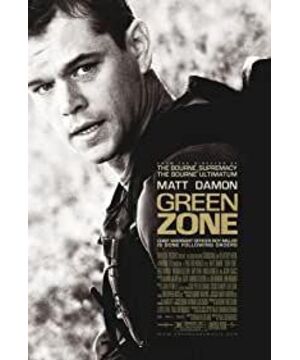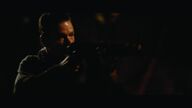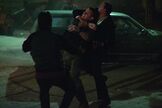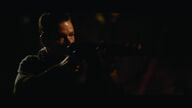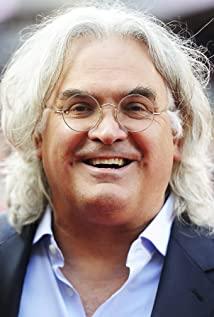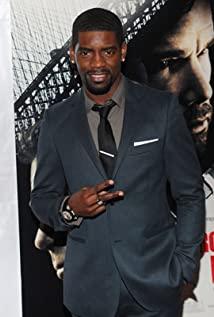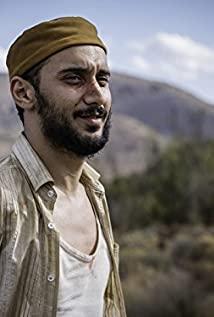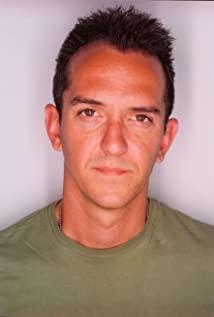In all fairness, as far as the photography and editing of the green grass is concerned, the [Green Zone] is absolutely maximized, and the whole film is reckless and almost completely uses hand-held photography. In short, the whole film is shaking. On the basis of Akira, as soon as the action scene is reached, the picture is cut to pieces. To sum up, the whole film of [Green Zone] is an unrestrained use of fine movement shots to create a sense of rhythm. When it comes to rhythm, I can only say that [Green Zone] is really good at creating visual impact, but rhythm seems to be a matter of consideration.
Rhythm and rhythm, what words are generally used to praise rhythm, smooth, coherent, compact? At least we all know that the atmosphere is to be created, and the rhythm is to be pushed up. When we look back on the last two films of [Bournemouth], are they useless except for the shaky action scenes? No, [Spy Shots] does not blindly create a sense of compactness. Its sudden turn into a soothing static shot is still a magic weapon to promote the sense of rhythm with shaking and cutting. There is a degree of relaxation, and the speed is staggered.
On the other hand [Green Zone], as mentioned above, the use of shaky shots without restraint and the use of fast editing regardless of the occasion, not only cannot promote the rhythm to create a sense of compactness, but instead make the audience suffer from visual fatigue in the later stages of the film. All the intense and tense feelings in the [Green Zone] can only exist on the basis of the physiological stimulation of the screen to the audience. Once the physiology starts to get tired, the [Green Zone] will be completely reduced to procrastination.
It has been said that the method of Green Grass should make the film show a strong documentary style. Isn't [Flight 93] also uncomfortable for the audience, maybe this is the goal of Comrade Green Grass. Well, produced by Green Grass, the documentary style is indispensable. Based on the background of [Bloody Sunday] and [Flight 93], which are based on real events, it can be said that it is a documentary. But let's take a look at the [Green Zone], is it more like the plot of [The Bourne] or the documentary of [Bloody Sunday]? Judging from the selection of the subject matter, Green Grass will undoubtedly take a documentary road of "exposing scars". But whether it is character setting or narrative mode, [Green Zone] is an out-and-out drama. Therefore, compared to "reducing the facts", [Green Zone] is more like [assassination of Hitler] in "deducting facts". Such a vague positioning has to be said to have dealt a blow to the film's box office performance.
If you look at the drama, the [Green Zone] is even more inaccurate. First of all, the sense of role substitution is not well done. Although portable photography can present a documentary style, it is difficult for the audience to substitute into the role of [Green Zone]. Different from the nervousness of Bonn's every move in "Bourne Bound", Miller's soldier role is destined to be threatened by impossibility, and the sense of crisis only barely exists in the final pursuit of the general. A role without a sense of crisis is like no one. The drama of conflict is just as bland.
Second, for nearly two hours, the audience follows the protagonist Miller around, knowing in their hearts it's futile. Similarly, unlike [Flight 93], which confronts the tragedy as a documentary, a lot of dramatic elements make [Green Zone] seem weak and powerless. Fundamentally speaking, the blandness of the plot of [Green Zone] and the tension without any foreshadowing almost have a double evil effect: there is neither the due ups and downs nor the change of rhythm, and the viewing effect is greatly reduced.
Generally speaking of green grass movies, I rarely mention the character settings in it. [Bloody Sunday] and [Flight 93] are famous for their non-fiction, and they mainly focus on group dramas. Even if [The Bourne] has a basis for the first episode, watch it too. The tricks of the green grass in portraying the characters are not out of the question. But I have to say that the characters of [Green Grass] are not satisfactory regardless of the setting or portrayal. The protagonist Miller is basically Bonn's routine, and the supporting roles take female reporters as an example. They have basically no character and basically no effect. I'm thinking that this character is so inaction, isn't it different to be a bystander from the first point of view?
Although the green grass has been demoted wildly, the box office failure of the [Green Zone] is actually a legacy problem. In the past few years, Iraq or Afghanistan have been touched by many people, and many famous people have tested the water. Whether you are Robert Redford, Paul Haggis or Ledley Scott, you will die every time you shoot, and you will lose both box office reputation. It's a regular meal. It was already difficult enough for Comrade Green Grass to choose such a subject. The shooting idea is still as always, "only expose, not recommend". There is only a strength to get to the bottom of it, but it is already old news that is rotten on the street. Who has the patience to watch you rock for two hours?
To sum up, no matter who is at fault, at least Paul Greengrass created this coffee table.
Lesson: Don't look at the [Bomb Hurt Locker] who paid the golden man, whoever shoots Iraq is the big SB these days.
View more about Green Zone reviews


